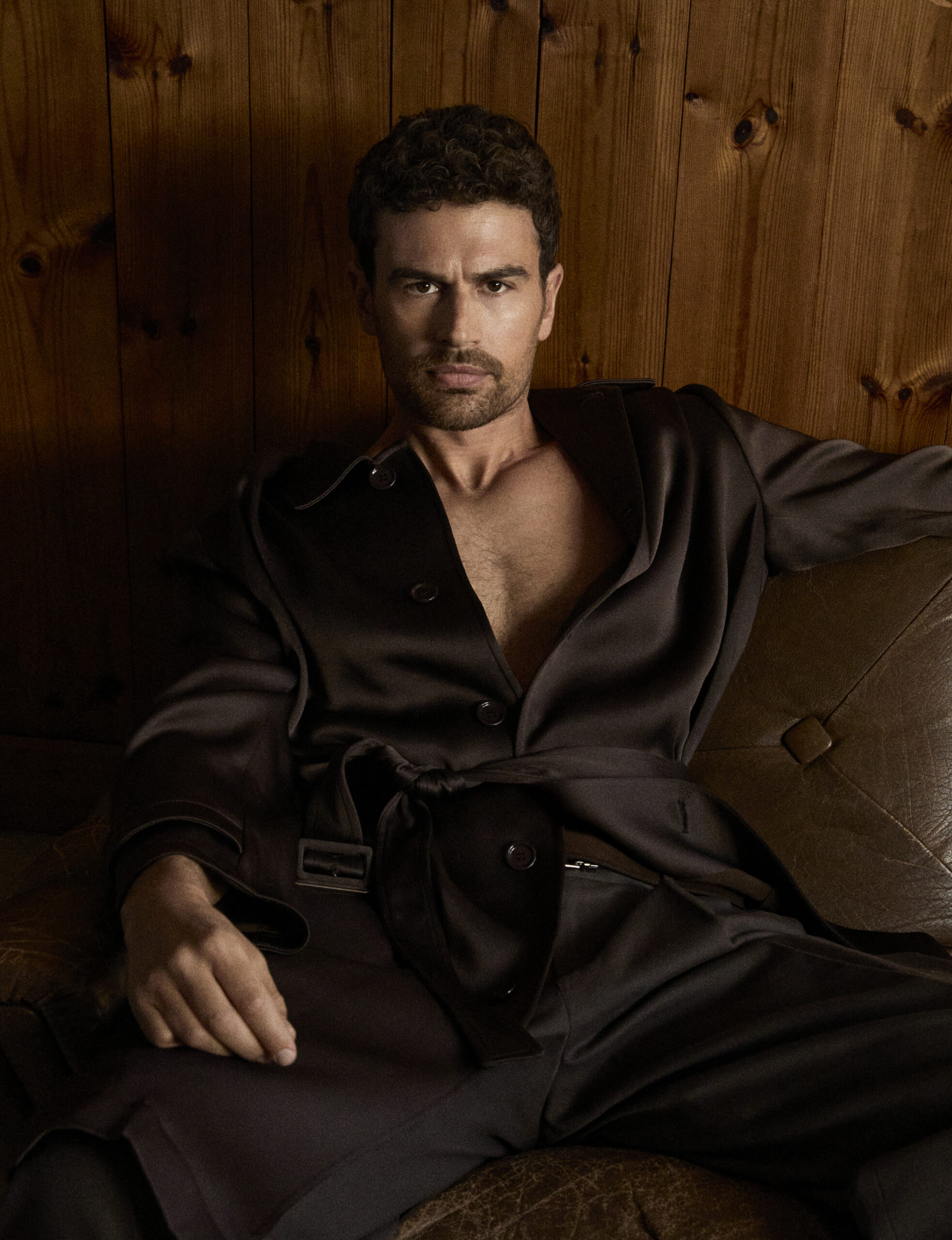In his upcoming feature FUZE, Theo James filmed 30-minute takes attempting to break through concrete.
“David Mackenzie, the director, had us learn to use the equipment—sledgehammers, concrete cutters, metal cutters—and then filmed us doing it,”he says over the phone from his home in North London. He, his wife (Irish actress Ruth Kearney), and their two children arrived a few days earlier after leaving Los Angeles, California due to the wildfires. “The process felt real because we were sweating and just covered in dirt and dust.”

For an actor, breaking through a metal wall in a bank’s basement to reach the riches inside serves as a concrete metaphor—pun intended. To “make it big” is a nearly impossible task. Yet if you do, you live the life of a TV and movie star, as James—now 40 years old—does. He famously starred in season 2 of HBO’s The White Lotus, a role for which he received a Primetime Emmy Nomination, as well as Netflix’s The Gentlemen, in which James plays an aristocrat who inherits his family’s estate, only to learn that it’s tied to an enormous and dangerous weed empire. That said, his foray into acting wasn’t launched by such lofty ambitions.
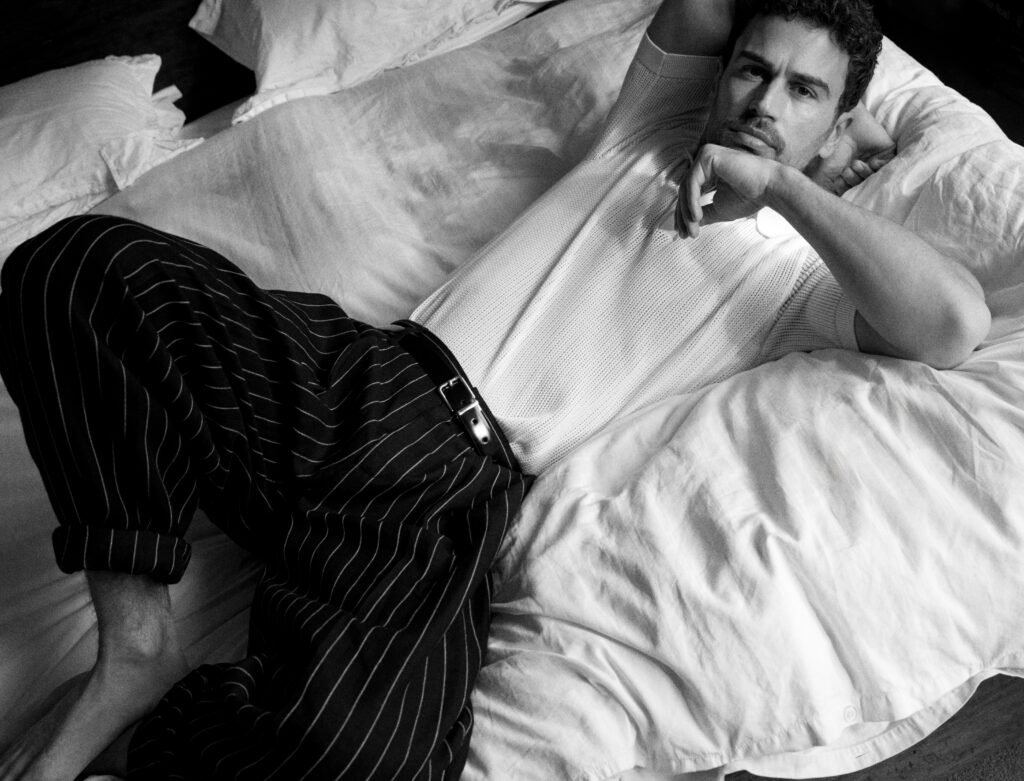
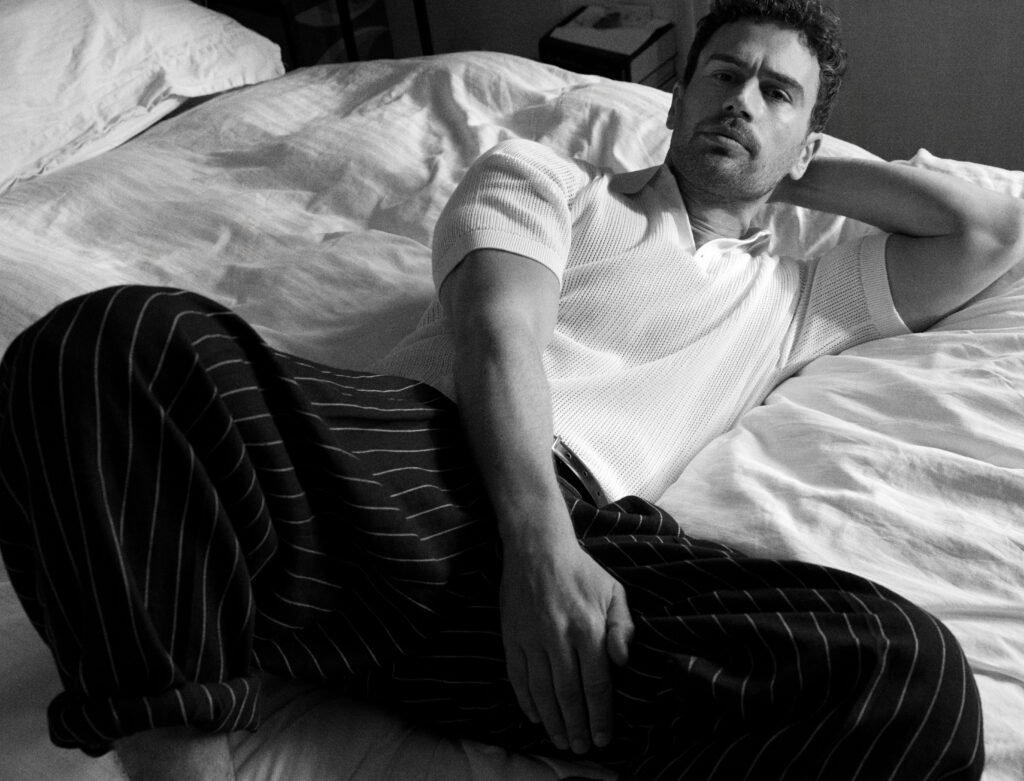
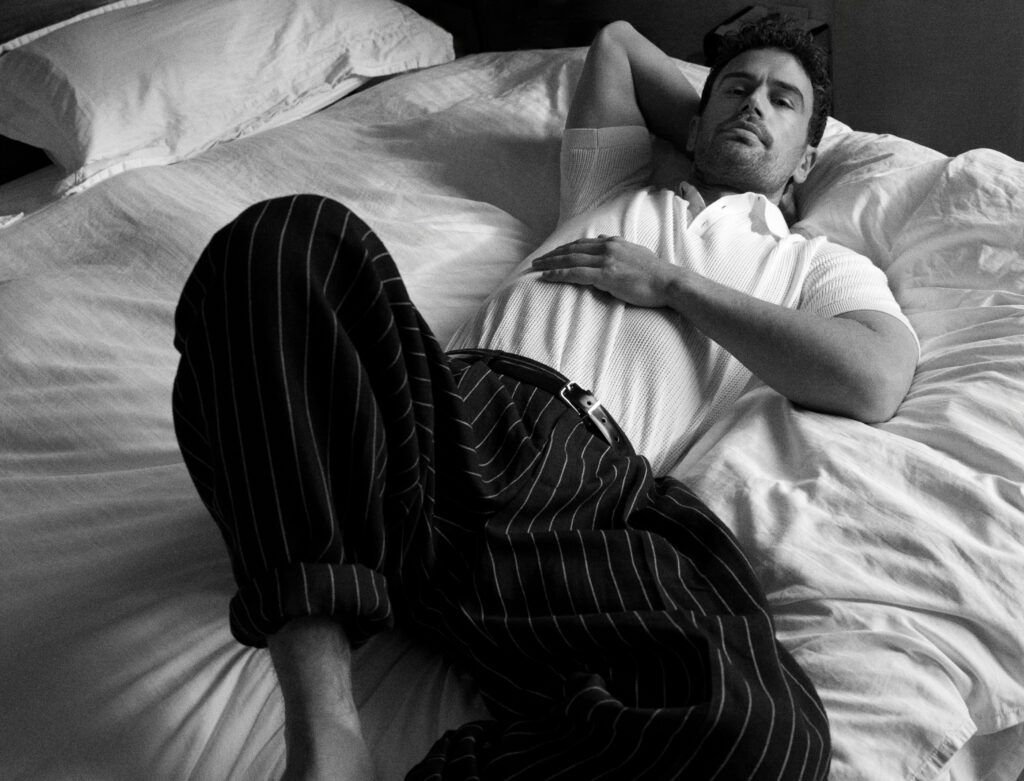
“In all honesty, as a teenager, the acting world was the best place to chat with girls,” he says of his humble beginnings doing plays at summer camp. But he developed a passion for performing that went beyond flirting with the ladies, eventually realizing that it just might be his calling. “I remember doing plays at university and thinking, ‘This is incredibly satisfying,’” he says. “If there’s any way for someone to do this as a job, they’d be pretty lucky.” There was, however, a time during which James focused on music more heavily than he did acting, testing out an alternative reality in which we’d know him through the sound of his voice (which is deep, gentle, and British) rather than his face.
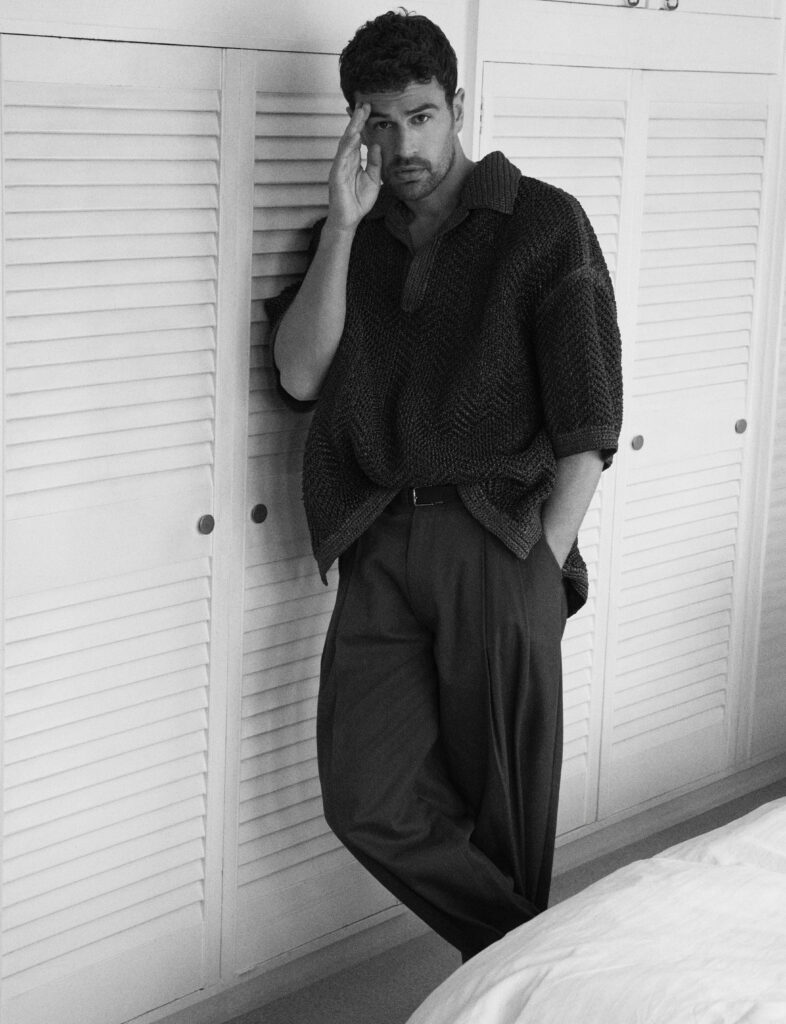
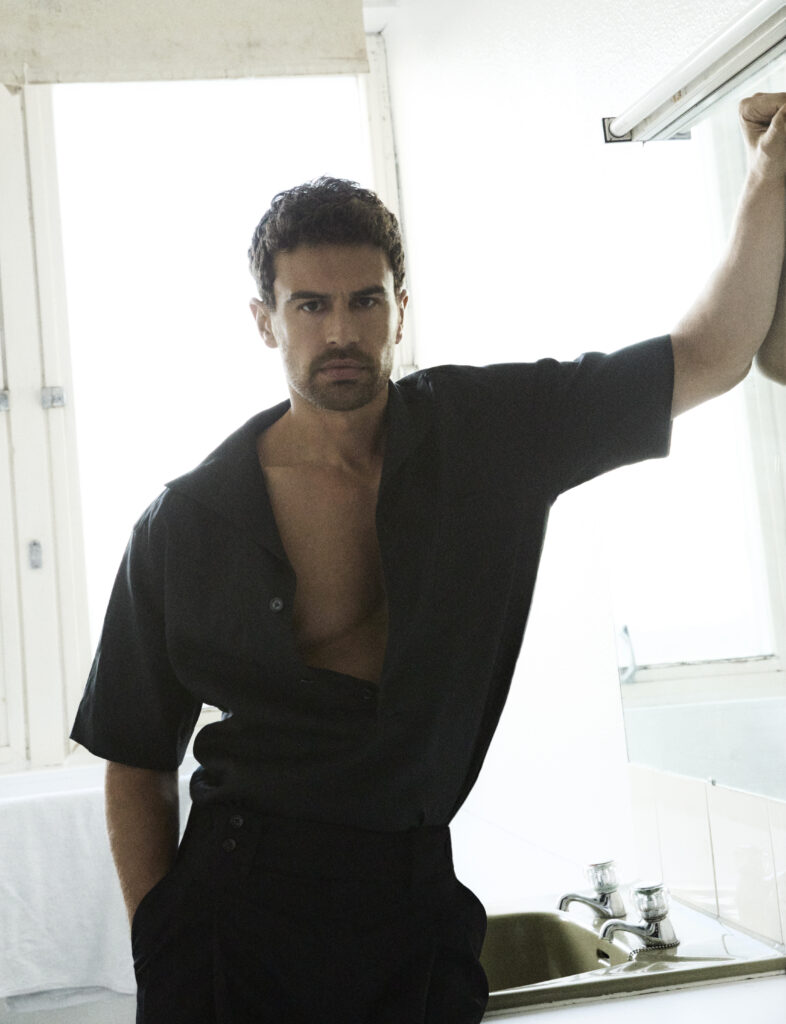
On skin Fig skin perfector shine control blurring powder DOLCE&GABBANA BEAUTY
“My fantasy was, naively, to be in a band,” he says—and he was in several. Although, of course, the music world is just as difficult to break into as the aforementioned cement wall. “In all honesty, I think I tried to the point where, perhaps, if it was going to happen, it would have happened,” he says. “But what I loved about it—and this is also what I like about theater—is that once you’re in front of people, once you’re live, you have complete control of the medium. With a play, of course, you do rehearsals and you’re reading someone else’s words. But with music, it’s your own words. Once you’re on stage, the choices are yours.”
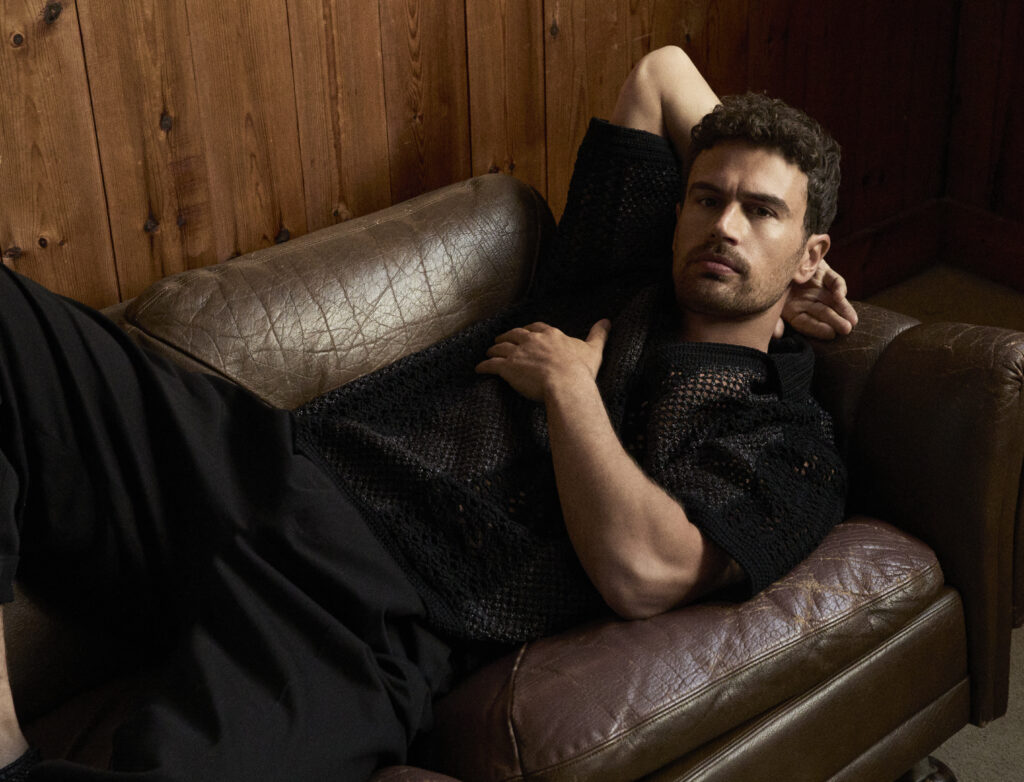
Having attended the Bristol Old Vic Theater School in England, there was indeed a time when theater was more prominent in James’ life. “It was great for Shakespeare and Jacobean plays, but it wasn’t good for screenwork. You didn’t really get any experience in that world,” he says. The shift, then, to TV and movies was a pragmatic one—he realized it was the fastest path toward paying off five years of student debt. Of course, the pivot was easier said than done.
“My brother is a huge cinephile, so we were always watching films and making bad ones ourselves as kids,” he recalls, having relied on some of these early memories to find his footing on screen. “I got an agent and started auditioning, but I remember my first television audition. It was a steep learning curve. I was shouting in the face of the casting directors as if it were a stage performance. They were…perturbed, shall we say.”
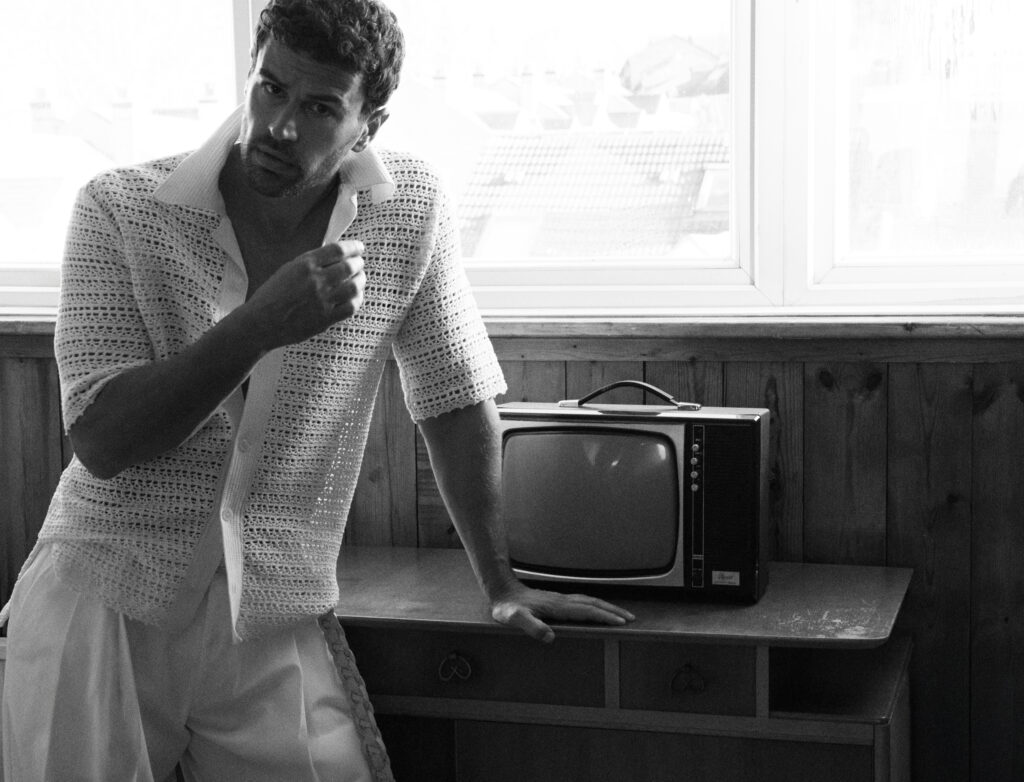
And it didn’t necessarily get easier right away. “You have the ups and downs of a career,” James says. “As young actors, when we first start out, it’s a bit feast-or-famine, and sometimes you take that personally.” During this early audition process in particular, struggling actors learn to eat rejection for breakfast. It is, for most, far more of the famine than the feast. “I remember an old interview with Bryan Cranston, where he essentially said, look, you’re selling a product,” he says. “If they don’t want to buy it, that’s okay. I thought it was interesting advice because young actors take these wins and losses very personally, but it’s not personal. Producing taught me that even more—it’s almost never personal. It’s about finding the right piece for the puzzle.”
He’s referring, amongst other projects, to his role producing Pepsi, Where’s My Jet?, a documentary about a college student’s battle against Pepsi after they refused to honor their ad’s promise of a Harrier jet in exchange for promotional points. It was James’ first foray into producing, but it won’t be his last.
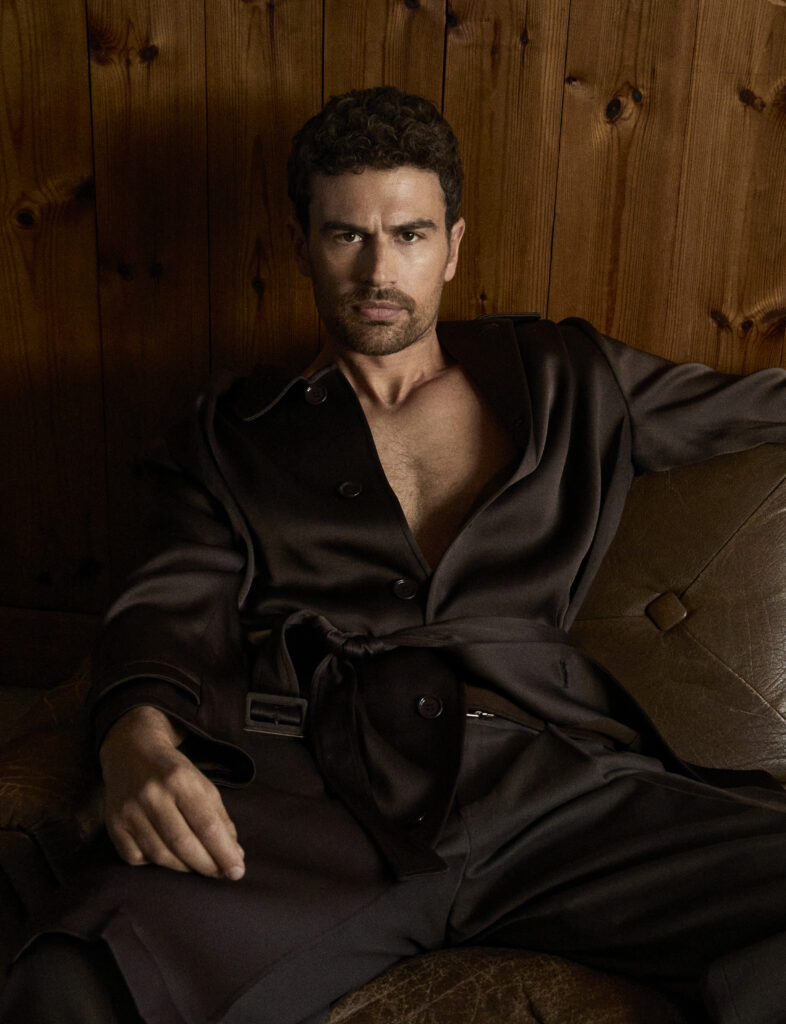
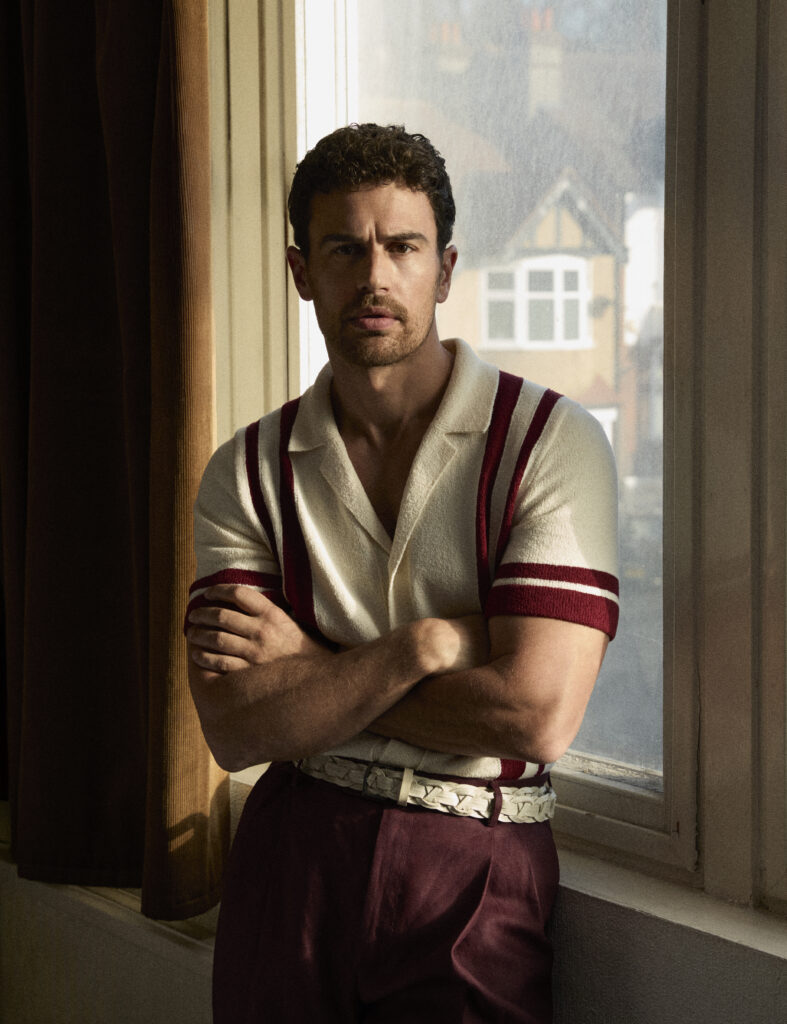
“Producing has been one of the most important and helpful things I’ve done for my work as an actor,” he says. “You understand the process behind the scenes. It’s invaluable because it gives you experience navigating tricky situations—complex shoots, complex personalities. And going back to auditions and failure, you realize it’s not personal.” Once this issue hits newsstands, James will be back on the big screen starring in Stephen King’s The Monkey, which the actor describes as, “a super dark, super violent comedy.” He’ll play the role of two twin brothers, Bill and Hal, who discover their father’s toy monkey in an attic, eliciting the start of a series of deaths. “It’s an allegory for trauma and pain, in a way,” he explains. “The monkey on your back—the idea of this trauma following you through life.”
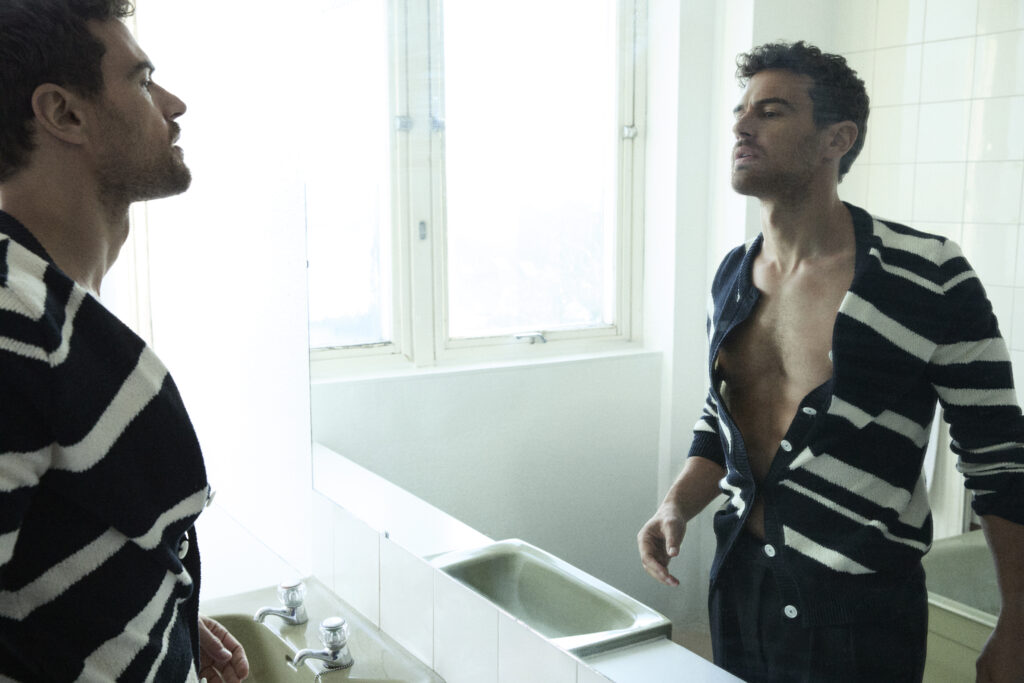
James’ day-to-day life, however, is much quieter, with shockingly little evidence of haunted animal toys or gruesome, blood-curdling deaths. Typically, he wakes up at 6:45 AM, takes his children to school, enjoys a coffee with his wife at their favorite local spot, Jolene, heads to the London Fight Factory for some boxing, and then hunkers down for a series of Zoom meetings before picking the kids up, arranging dinner, putting the kids to bed, and perhaps opening a bottle of wine.
“So…not too sexy,” he jokes. Perhaps not, but it is real—a quality James still holds onto. He is, after all, just a man, even if he occasionally robs banks, fights cannabis drug lords, or fights against demonic toy monkeys, and all in time to pick the kiddos up from school.
This cover story appears in the pages of VMAN 54: now available for purchase!
Photography Alvaro Beamud Cortes
Fashion Davey Sutton
Creative Director / Editor-in-Chief Stephen Gan
Grooming Nadia Altinbas using Oribe & Dolce & Gabbana Beauty
Production The Production Factory
Retouching Camillo Bernardi Studio
1st Photo assistant / DOP & Video Editor Simone Triacca
2nd Photo assistant Oran Eggerton
Digitech Sacha Phillips
Stylist assistant Vini Chenoweth-Bell
Discover More












